(8 min. read)

What are keywords?
Keywords are the words we type into the Google search engine when we search for a given service or product or for information,. Keywords are also known as phrases or key phrases.
 Searched keyword
Searched keyword
When we talk about keywords in discussing SEO, we mean several distinct types:
- branding (i.e. company name, trademark) - keywords typed by the internet users in the search box when they do not know the internet address of a certain company and wish to find it. In most cases, a website does not need to do a lot of work to be visible at the top of the search results for the brand it represents. This is the result of a few simple facts
- the name of the company is usually unique (if you are at the stage of choosing a company name, check if there is an enterprise registered under the one you like to avoid confusion and to be sure you will appear first in brand search results)
- the domain name is often the same as the company name, so the brand search ranks the website high in the results.
- general keywords - phrases consisting of one or two words. Most often searched by people who are interested in some kind of product or service, but their choice is still not certain. Being at the top of such results does not always mean huge profits. In addition, search engine optimization for general phrases is much harder due to the stiff competition. Examples of such words are:
- shoes
- travel
- swatches
- long-tail phrases - these are the phrases which consist of more than two words. Internet users who type them in the search box have a firm preference when it comes to the searched terms, and know what they are looking for. Search Engine Optimization for such keywords is usually easier as they are less competitive. Here are some examples:
- leather winter shoes
- travel to Cuba
- men’s watches with strap
The summary above refers to websites used for business purposes, in connection with selling or advertising a product or service. Aside from such searches, we should also mention simple fact checks using key phrases, such as "capital of Kenya", "how to tie a tie" or "president of the Czech Republic".
Key phrases and their length are clearly described in the diagram below:

Source: http://
To summarize:
- The fewer words a given phrase has, the more frequently it is typed into the search box, but the competitiveness of a given word grows the shorter the phrase is (and the harder it is to optimize for such a word effectively), and the more expensive it is.
- More words mean less competition for a given phrase, but it also appears less frequently in searches.
It is worth mentioning that longer phrases denote a precise need, which in turn leads the user to the exact result of the thing he or she was looking for.
How to choose keywords?
You know what types of keywords there are and how they can be characterized, but how to select them? Here are some ideas:
1. Write down the services and products you provide
This is the most basic and often the most effective way of creating a list of key phrases for SEO. It is also worth noting the market niche you operate in. If you only provide your services locally (i.e. around the town you are located in), it is generally a good idea to add the name of the place as most internet users will search for a given service with the location in mind.
Below, you will see some examples of business services:
- Example 1: computer services in Glasgow:
- computer fixes Glasgow
- laptop fixing Glasgow
- cleaning laptops Glasgow
- Example 2: Internet store with Apple accessories:
- iPhone 4s case
- iPhone 6 battery
- charger iPhone 4
2. Use Google suggestions
When you type a given phrase into Google, the search engine gives you a list of hints which may contain some additional information. Such tips may be found in two places:
- Under the search result list:

- In the search box:

The suggestions are not only useful for those who are searching for a certain product or service, but also for those offering them and looking for a good phrase for SEO. Search suggestions consist of words we have typed in which are frequently searched by other internet users.
3. Use Ubersuggest tool - https://
Ubersuggest is a tool that works similarly to Google search suggestions. Typing one word will give you a list of related terms which may be used for SEO as they are searched for by other users. Using the tool is very simple.
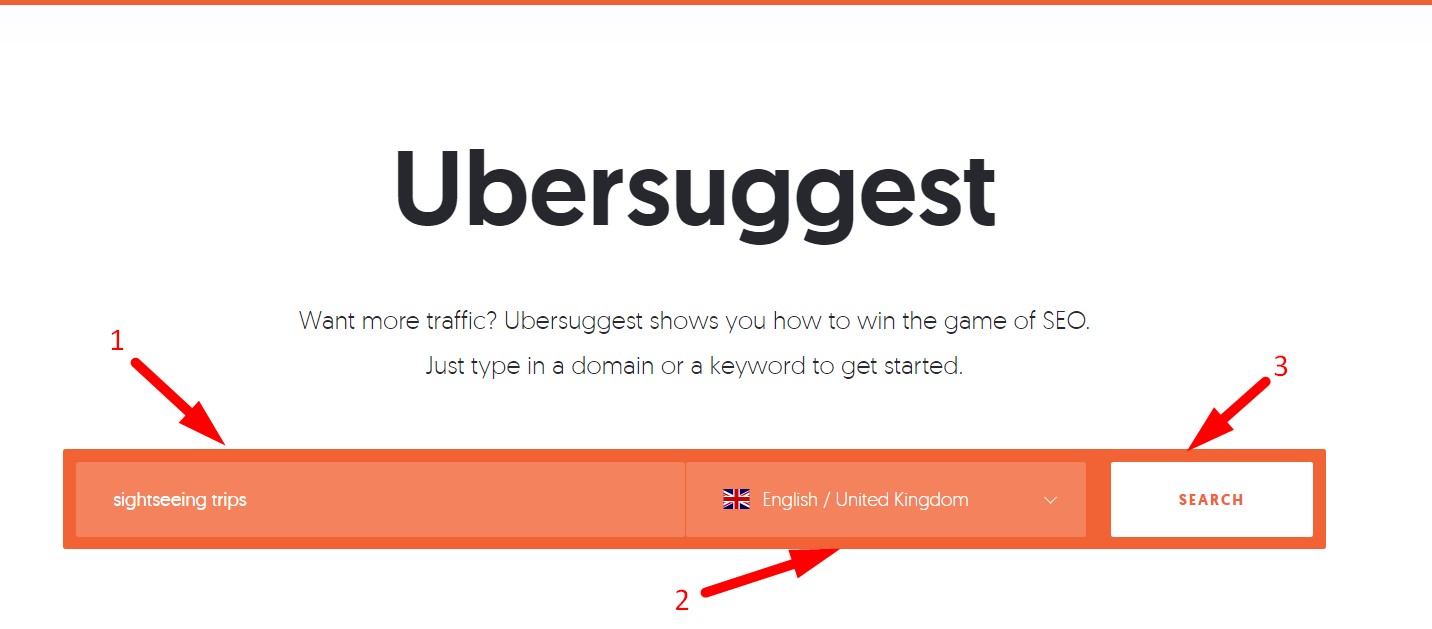
You just type the basic keyword into box no. 1, in box no. 2 you choose the language and then you click no. 3 - suggest. Here are some results you can receive when you type in "sightseeing trips".
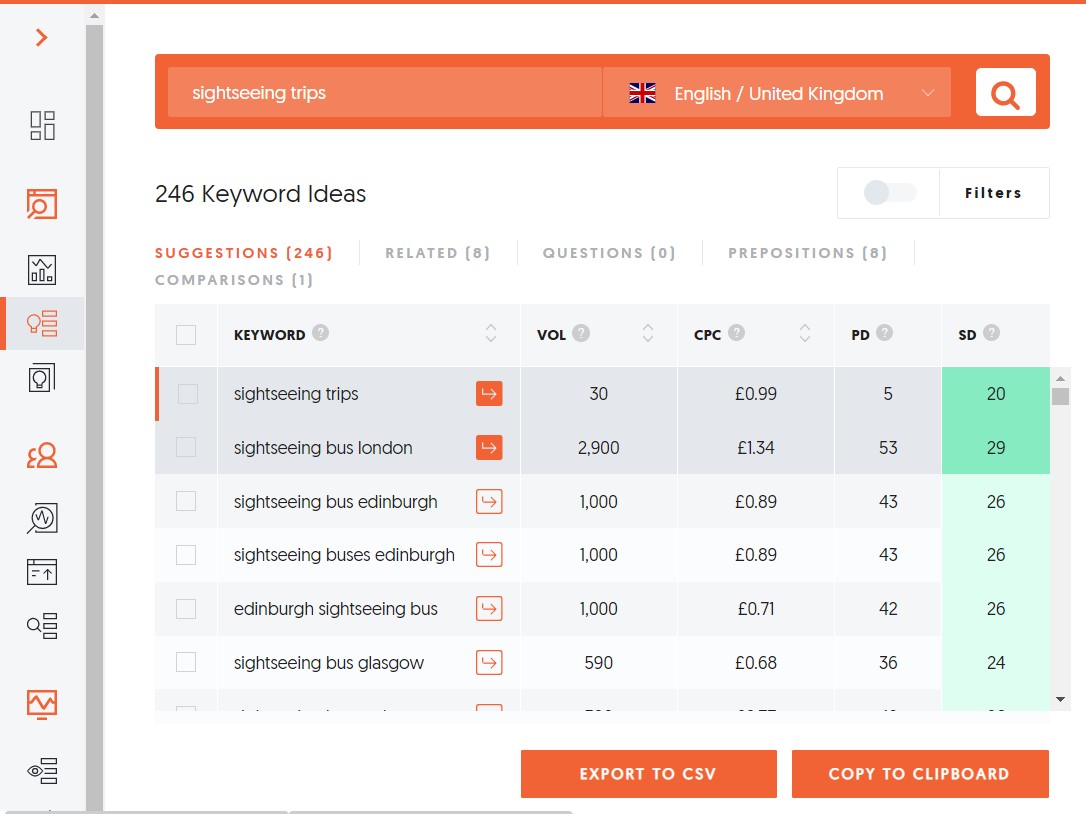
You would receive a very similar list if you typed in searches for
- sightseeing trip a,
- sightseeing trip b,
- sightseeing trip c
and added the suggestions presented by Google. Ubersuggest does this automatically.
4. Use keyword.io tool - https://
KeywordTool is a similar search engine. It functions like Ubersuggest, but gives you even more results. Using it is effortless and intuitive.

The base keyword should be typed into field no. 1 and all you need to do is click button no. 2.
Here are the searches:
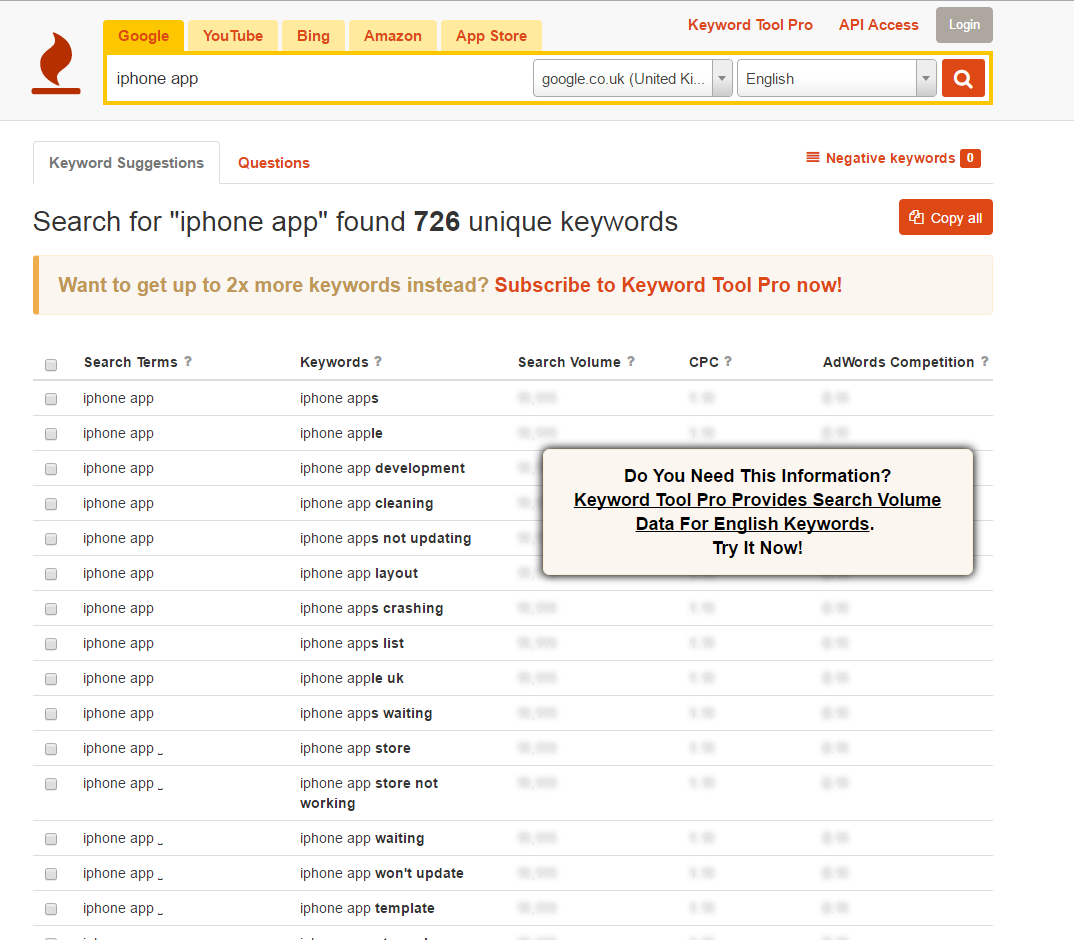
5. Use the Google AdWords planner tool
Yet another tool which will help you in the search for the best key phrases. To use it, you have to log in to your Google account and type the address https://
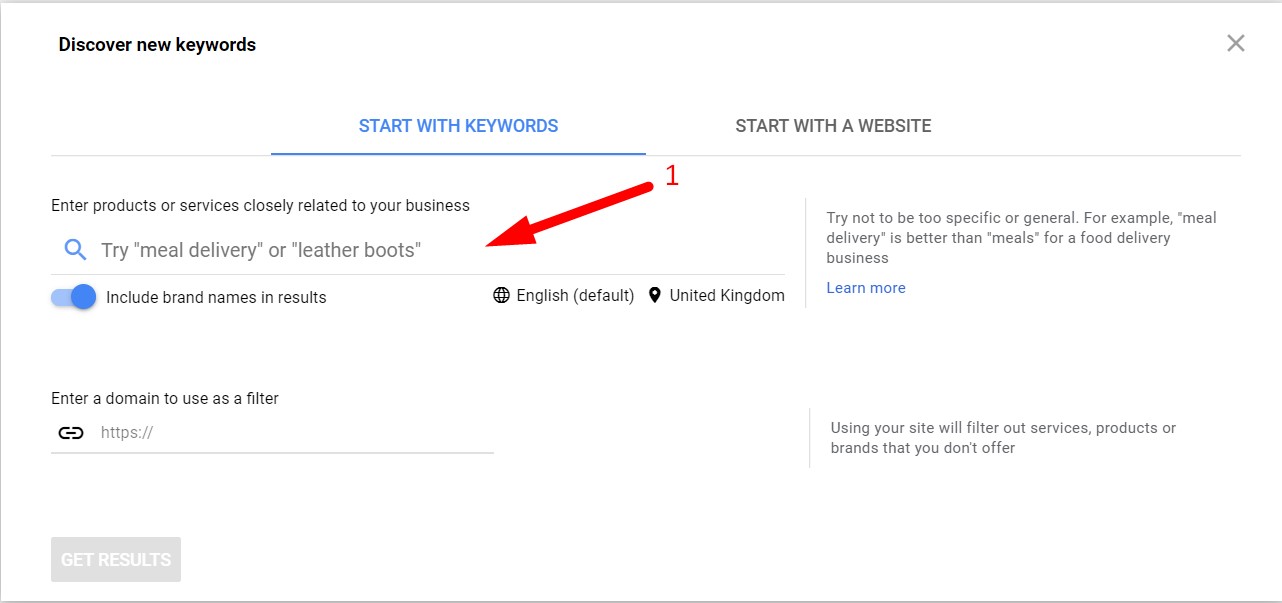
Next, type the base key phrase into box no. 1 (in this example we will use "dog food") and click button - get results.
The results should be presented in this way:
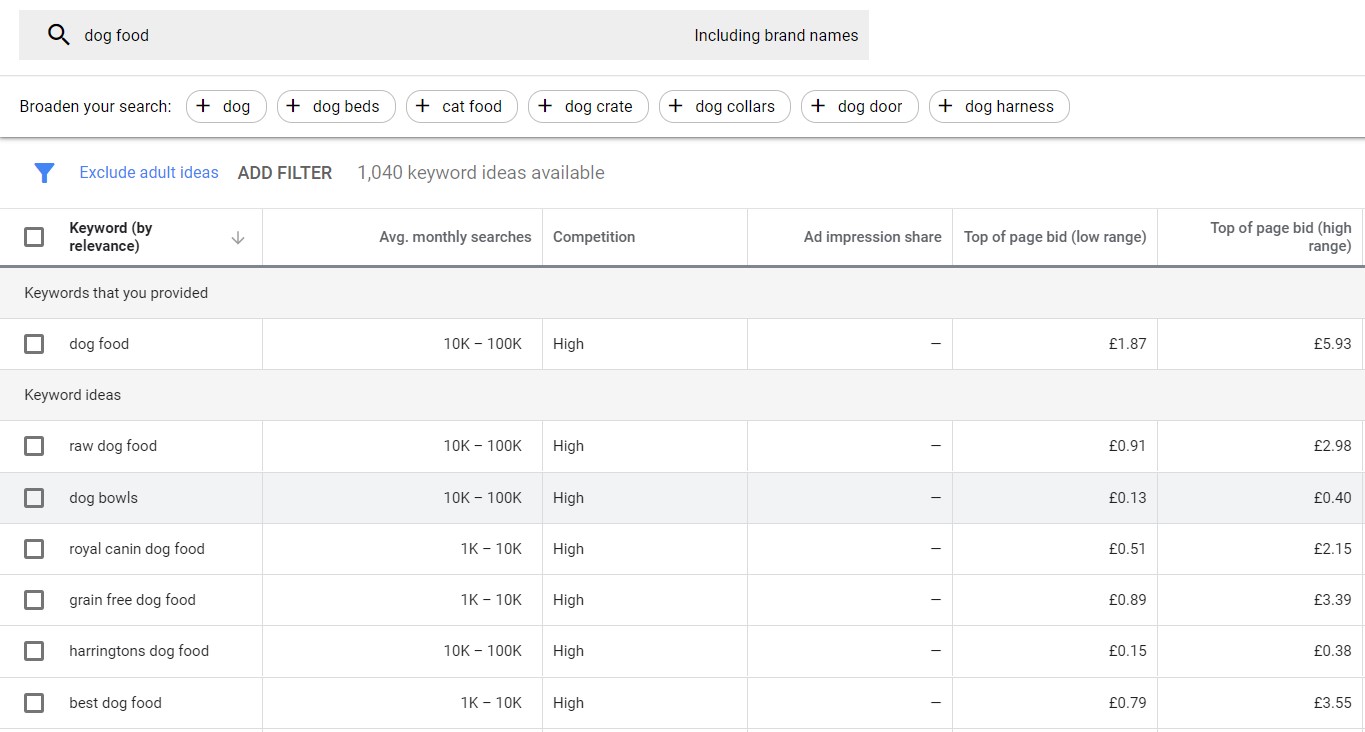
Adjusting Keyword Strategy Based on Company Profile
When planning an SEO strategy, it's crucial to tailor your choice of target keywords based on your company's profile and industry. For example, optimizing pages for a SaaS (Software as a Service) company often requires a focus on long-tail, intent-driven keywords that highlight specific features, solutions, or benefits, such as "best CRM for small businesses" or "collaboration tools for remote teams." SaaS companies thrive by addressing precise pain points and providing solutions, so their keyword strategy should align closely with the customer journey, often emphasizing educational and comparison queries.
On the other hand, SEO for enterprises typically involves targeting high-volume, broad terms to capture a large audience. Enterprises benefit from leveraging their authority and scale to dominate competitive keywords like "cloud storage" or "business intelligence software." Their strategies may also integrate branded keywords and local SEO elements if the enterprise operates in multiple regions.
For e-commerce businesses, SEO demands a slightly different focus. Here, product-centric keywords, including specific product names, categories, and attributes, play a vital role. Keywords like "organic cotton T-shirts" or "Bluetooth headphones under $50" help capture intent-driven searches directly tied to purchasing decisions. Additionally, e-commerce SEO often relies heavily on optimizing product descriptions, categories, and filtering options to improve both user experience and search engine visibility.
Understanding these distinctions ensures the keywords align with your business objectives, competitive positioning, and customer acquisition goals.
How to analyze if keywords generate traffic?
When you have a full list of key phrases made using the tools enumerated above, you just have to check how frequently the given phrase is searched by Google users. It can also be done using the aforementioned Google AdWords planner. When you go to the address https://
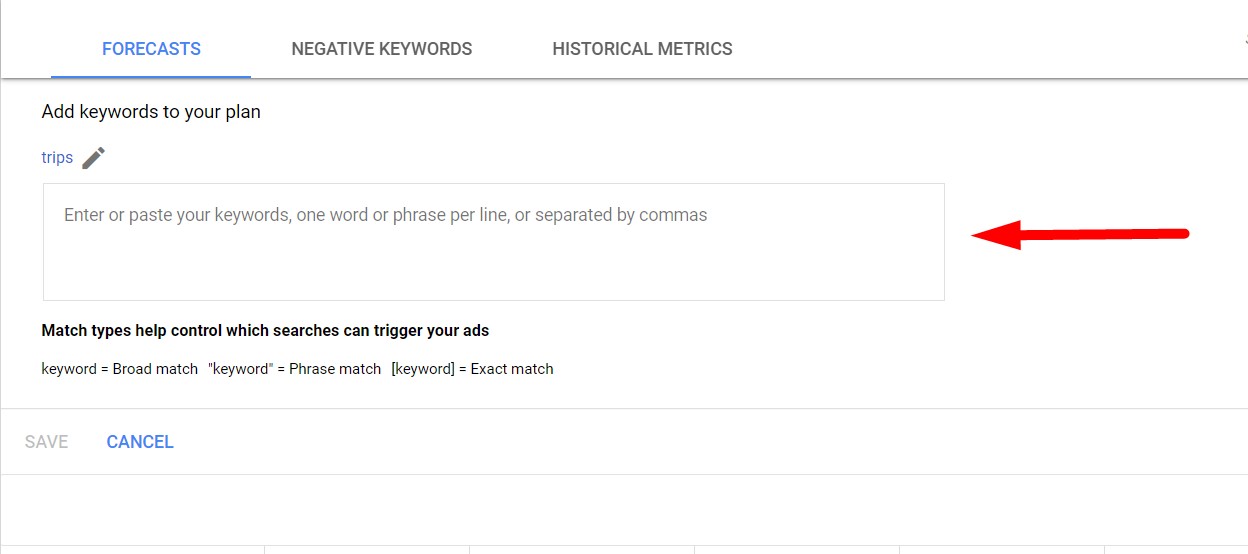
After that, click "save". An example of the results is shown below:
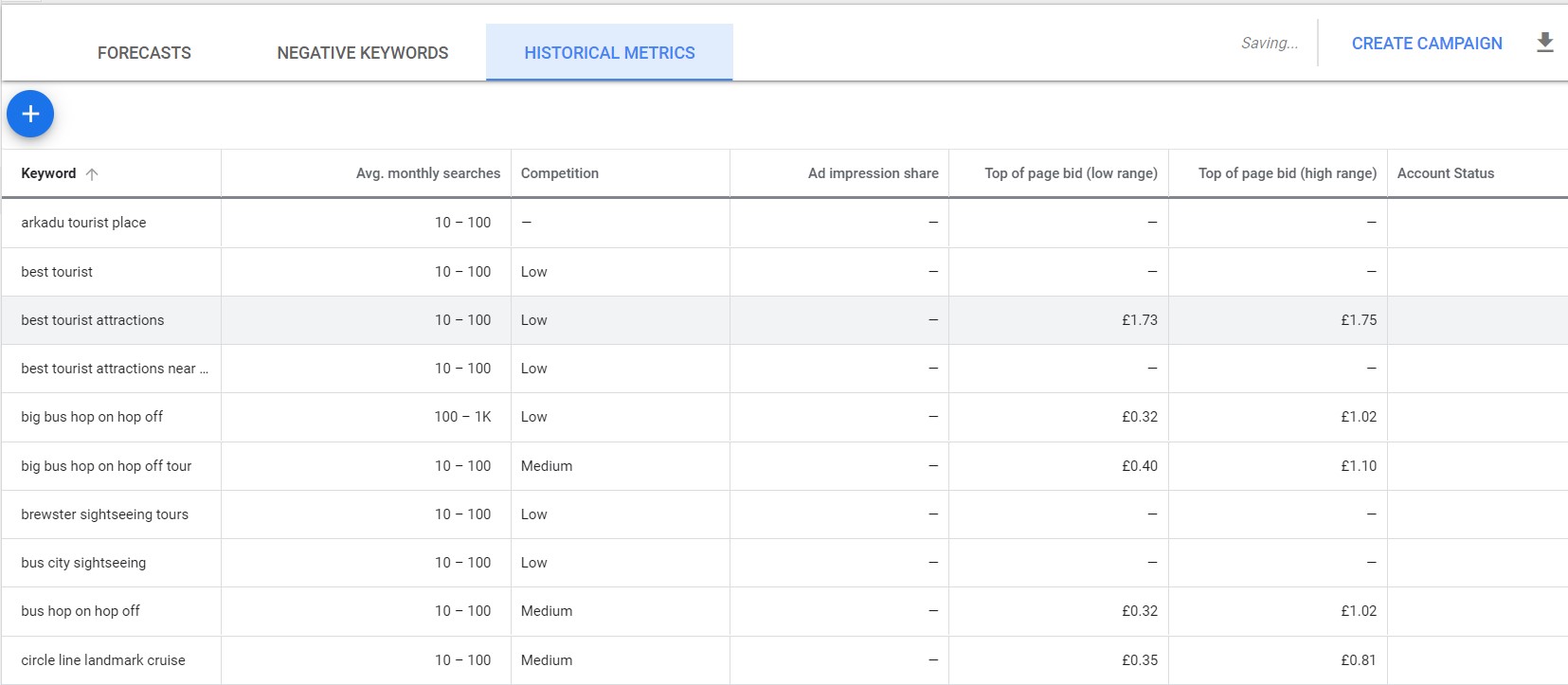
In the "average monthly searches" column, you will obviously see the average search quota for the given phrase. In addition, if you click on plan overview, you'll see the forecasts over the next year.
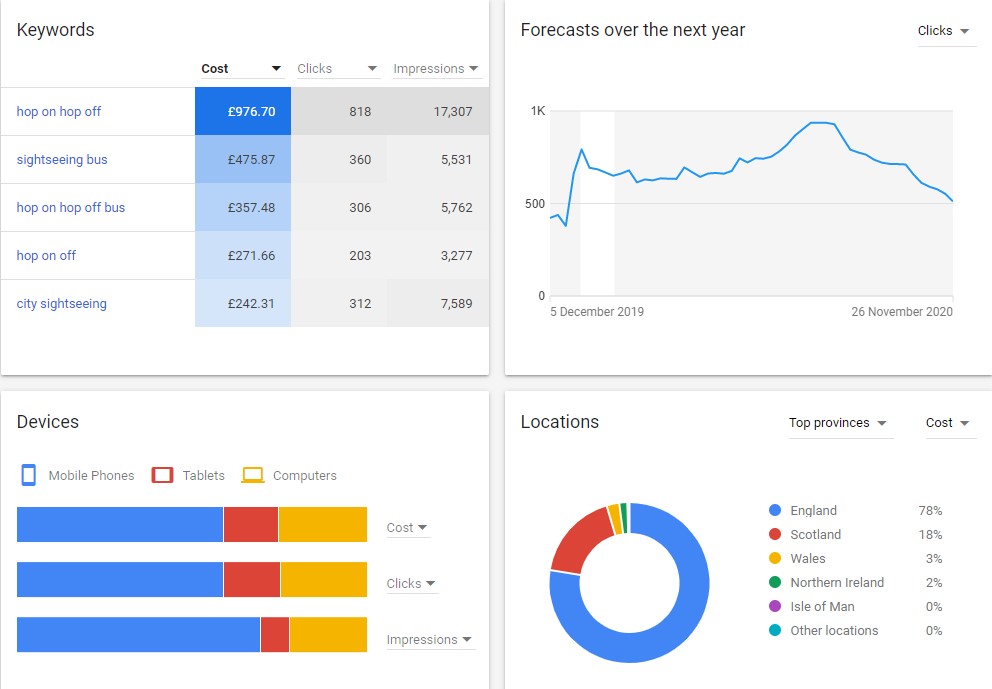
As you can see, some of the keywords are seasonal, which means their popularity is dependent on the time of year.
How to interpret the information regarding the average number of searches for a given key phrase? Can you presume that if you end up at the top of the search results for a given keyword your page will be visited by the number of users specified in the data? Unfortunately, it’s not as easy as that, as we mentioned in the previous article https://
What influences the competitiveness of keywords?
The last, but not the least important factor in the choice of key phrases for SEO is competitiveness. It affects the cost of optimization of a given phrase and the time it will take to do it. Competitiveness evaluation demands specialist SEO knowledge and a bit of experience. Therefore, below you will find only general factors that affect the competitiveness of key phrases:
- Market niche - the most competitive keywords for a given industry are connected with areas that are the most profitable, such as finance, banking and insurance.
- The number of competitors - the more websites and companies there are in a given industry, the harder it is to achieve better positions than your competition.
- SEO of your competitors’ websites - more well-optimized websites for a given phrase mean harder SEO work for your own page. We will write more about SEO in further articles.
- The amount of links leading to the competition and their quality - it will be harder to gain a better position in search results if your competitors have a large number of quality links.
Author: Karol Soja


